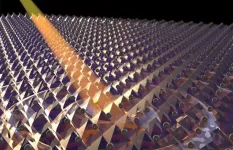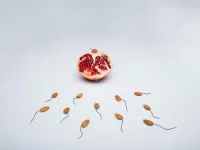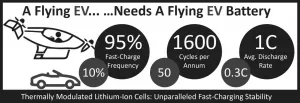Societal divisions could hinder EU climate policy
2021-06-07
(Press-News.org) Many contemporary political conflicts are between those who would prioritize the needs of local or national communities and those with a more universal outlook. According to a new study by IASS researcher Silvia Weko, this split between "communitarian" and "cosmopolitan" Europeans is also evident in their attitudes towards European climate policy. Achieving climate neutrality without exacerbating societal divisions within and between countries will require the EU to strike a careful balance.
In political philosophy cosmopolitans and communitarians are frequently characterized as "winners" and "losers" of globalization. Their respective gains and losses have an objective and a subjective dimension: globalization can be perceived as threatening or promising in view of such hard facts as job losses or due to ideologies or values. The most important subjective difference is the perception of community. Cosmopolitans see community as universal, conceiving of individuals as equal regardless of group membership, while communitarians perceive community in terms of belonging to a particular group, often defined locally.
Ideology plays a larger role than party preferences
This division is a challenge for the EU's climate policy. The successful implementation of the Green Deal, which aims to make Europe completely carbon-neutral by 2050, will require the backing of publics across the Member States. Silvia Weko has analysed data from the European Social Survey to ascertain how deep the divisions between cosmopolitan and communitarian Europeans - evident in other policy areas such as migration - are in relation to climate and energy.
"The results show that political ideology is also highly influential in shaping attitudes towards climate policy. Indeed, it influences attitudes towards climate policy across all of the countries examined and to a stronger degree than individuals' identification along the left-right divide", explains the sociologist. The more cosmopolitan a person's political ideology, the more positive their attitudes are towards climate action. In the case of both groups, subjective aspects have a greater influence on attitudes towards climate protection than objective circumstances. On average, people in Eastern European countries are less concerned about climate change than those in Western European countries. Instead, their priorities are energy security and economic development.
Surveys can support decision-making on climate policy
The EU now faces the challenge of winning over communitarian-minded Europeans and ensuring that no one is 'left behind' as it moves towards climate neutrality. Weko identifies a number of promising signs: "The European Commission has stressed its intention to ensure that no one will be 'left behind'. One concrete measure, would be to tackle energy poverty, which is much more widespread in Eastern Europe, by renovating social housing, schools, and hospitals." The "Just Transitions Fund" could also help to support regions hit particularly hard by structural change.
Weko also suggests that the European Commission should regularly assess attitudes towards climate and energy policy, ideally in an annual survey, just as it already does in relation to issues around integration and migration. Gaining a better understanding of people's concerns would help to address future obstacles to achieving climate neutrality.
INFORMATION:
ELSE PRESS RELEASES FROM THIS DATE:
2021-06-07
UPTON, NY--What happens when very short pulses of laser light strike a magnetic material? A large international collaboration led by the U.S. Department of Energy's (DOE) Brookhaven National Laboratory set out to answer this very question. As they just reported in the Proceedings of the National Academy of Sciences, the laser suppressed magnetic order across the entire material for several picoseconds, or trillionths of a second. Understanding how magnetic correlations change on ultrafast timescales is the first step in being able to control magnetism in application-oriented ways. For example, with such control, we may be able to more quickly write data to memory devices or enhance superconductivity ...
2021-06-07
The lack of data is a major bottleneck for many kinds of research, and especially for the development of better medical treatments and drugs. This data is extremely sensitive and, understandably, people and companies alike are often unwilling to share their information with others.
Researchers at the Finnish Center for Artificial Intelligence have developed a machine learning-based method that produces synthetic data on the basis of original data sets, making it possible for researchers to share their data with one other. This could solve the ongoing problem of data scarcity in medical research and other fields where information is sensitive.
The generated data preserves privacy, remaining similar enough to the original data to be used for statistical ...
2021-06-07
Researchers at Queen Mary University of London have tested an algorithm on 700,000 patient records in east London, to find out if the data routinely collected by GPs can reveal cases of Familial Hypercholesterolemia - a leading cause of heart attack in young people.
Familial Hypercholesterolemia (FH) is a condition passed down through families that causes extremely high levels of cholesterol in the blood. Without treatment, it can lead to a heart attack at a very young age. FH affects 320,000 people in the UK, the vast majority of whom are unaware they have it.
One method of detection is the 'FAMCAT' (Familial Hypercholesterolemia Case Assertation Tool) which analyses data in GP records - including ...
2021-06-07
The ability of stem cells to fix impaired functions of host tissues after transplantation has been a lifesaving breakthrough in treating previously incurable conditions. Much like a coin toss, however, the fate of the transplanted stem cells is unpredictable. They may choose self-renewal, grow into a different kind of tissue, or die.
Spermatogonial stem cells follow the same stochastic fate of unpredictability in outcomes. But a group of fertility scientists led by Hiroshima University's Yoshiaki Nakamura discovered a new method that has favorably flipped the odds and successfully reversed male infertility in mice -- showing great promise for future applications in regenerating human sperm after cancer treatment ...
2021-06-07
Normally, the ACE2 enzyme helps regulate our blood pressure. The enzyme sits on the surface of cells, including cells in the lungs, but in connection with COVID-19 it has been found that ACE2 also functions as a gateway for the virus.
"Different viruses have different ways of accessing our cells - as the virus must, of course, get into the cell to be able to replicate, and the coronavirus uses ACE2 to gain access. For this reason, we're investigating what the concentration of ACE2 means for the course of the disease, if you get COVID-19," explains MD and PhD Tue Wenzel Kragstrup from the Department of Biomedicine at Aarhus University. The preliminary results have just been published in the scientific journal PLOS ONE.
As mentioned, ACE2 is part of the surface of the cells, but ...
2021-06-07
AUSTIN, Texas -- Puerto Rico is not ready for another hurricane season, let alone the effects of climate change, according to a new study that shows the island's outstanding capacity to produce record-breaking floods and trigger a large number of landslides.
The latest research, appearing in the journal END ...
2021-06-07
Jet packs, robot maids and flying cars were all promises for the 21st century. We got mechanized, autonomous vacuum cleaners instead. Now a team of Penn State researchers are exploring the requirements for electric vertical takeoff and landing (eVTOL) vehicles and designing and testing potential battery power sources.
"I think flying cars have the potential to eliminate a lot of time and increase productivity and open the sky corridors to transportation," said Chao-Yang Wang, holder of the William E. Diefender Chair of Mechanical Engineering and director of the Electrochemical Engine Center, Penn State. "But electric vertical takeoff and landing vehicles are very challenging technology for the batteries."
The researchers define the technical requirements ...
2021-06-07
Bdelloid rotifers are multicellular animals so small you need a microscope to see them. Despite their size, they're known for being tough, capable of surviving through drying, freezing, starvation, and low oxygen. Now, researchers reporting in the journal Current Biology on June 7 have found that not only can they withstand being frozen, but they can also persist for at least 24,000 years in the Siberian permafrost and survive.
"Our report is the hardest proof as of today that multicellular animals could withstand tens of thousands of years in cryptobiosis, the state of almost completely arrested metabolism," says Stas Malavin ...
2021-06-07
The aurora borealis, or northern lights, that fill the sky in high-latitude regions have fascinated people for thousands of years. But how they're created, while theorized, had not been conclusively proven.
In a new study, a team of physicists led by University of Iowa reports definitive evidence that the most brilliant auroras are produced by powerful electromagnetic waves during geomagnetic storms. The phenomena, known as Alfven waves, accelerate electrons toward Earth, causing the particles to produce the familiar atmospheric light show.
The study, published online June 7 in the journal Nature Communications, concludes a decades-long quest to demonstrate experimentally the physical mechanisms for the acceleration of electrons by Alfven waves under ...
2021-06-07
What The Study Did: In this study, short-term effectiveness of the first dose of the BNT162b2 (BioNTech/Pfizer) vaccine against SARS-CoV-2 infection 13 to 24 days after immunization in a real-world setting was assessed.
Authors: Gabriel Chodick, Ph.D., of the Maccabi Institute for Research & Innovation, Maccabi Healthcare Services, in Tel Aviv, Israel, is the corresponding author.
To access the embargoed study: Visit our For The Media website at this link https://media.jamanetwork.com/
(doi:10.1001/jamanetworkopen.2021.15985)
Editor's Note: Please see the article for additional information, including other authors, author contributions and affiliations, ...
LAST 30 PRESS RELEASES:
[Press-News.org] Societal divisions could hinder EU climate policy




